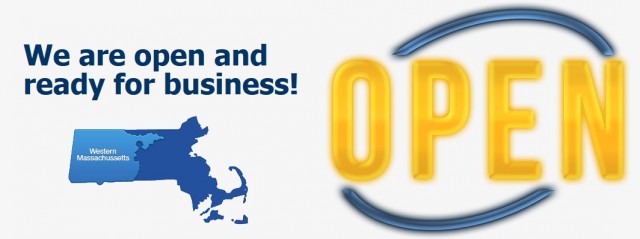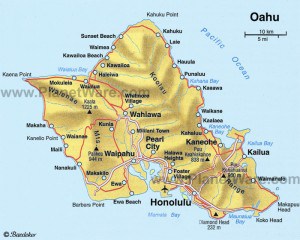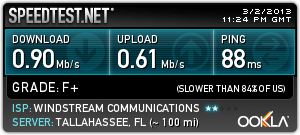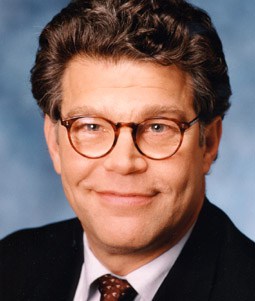 The Massachusetts Broadband Institute has completed construction and testing of the massive 1,200 mile fiber optic network designed to bring 21st century Internet connectivity to rural western and central Massachusetts now largely left out of the broadband revolution.
The Massachusetts Broadband Institute has completed construction and testing of the massive 1,200 mile fiber optic network designed to bring 21st century Internet connectivity to rural western and central Massachusetts now largely left out of the broadband revolution.
After spending $89.7 million in state and federal funds, the fiber project that started construction in 2011 has delivered a robust middle-mile network that, for now, will largely target and serve 1,400 schools, libraries, and government buildings — institutional users that have access to government broadband funding programs to pay for hookups to the fiber network. Finding the money to connect the 333,500 households and 44,000 businesses MassBroadband123 wants to reach is more difficult.
Steve Nelson, the legal/governance chair of the WiredWest Executive Committee, likens it to seeing big water mains being laid along roadways with no way to connect pipes to your house. The media may proclaim the network is complete, but in reality, there is a lot of work that remains to extend broadband service to the residents and businesses that need it most.
Massachusetts Gov. Deval Patrick recently announced funding to support some of the costs of the all-too-critical “last mile” — bringing a connection from the existing fiber network to a home or business. Out of a $900 million bond bill for technology projects, a set aside of $50 million has been reserved for broadband. The bill is waiting for action by the Senate Committee on Bonding, Capital Expenditures and State Assets. If it passes, Nelson believes it will cover about half of the estimated $100 million needed to finish the last mile and begin offering service.

As with many publicly funded, open access broadband networks, private providers are usually invited to participate, but in fact rarely do. Despite calls from Rep. “Smitty” Pignatelli (D-Berkshire 4th District) for Verizon and Comcast to get on board, there is no sign either company is prepared to do so. Nelson says waiting for either company to solve the last-mile problem in areas where they’ve never shown much interest before is like “Waiting for Godot.”
 “It’s time to stop talking and waiting for Comcast or Verizon,” Nelson writes. “We the people of Western Mass. have the power to solve the last mile problem ourselves. Forty-two towns have formed WiredWest, a cooperative dedicated to bringing broadband home to our citizens.”
“It’s time to stop talking and waiting for Comcast or Verizon,” Nelson writes. “We the people of Western Mass. have the power to solve the last mile problem ourselves. Forty-two towns have formed WiredWest, a cooperative dedicated to bringing broadband home to our citizens.”
WiredWest is seeking federal rural broadband funding designated to support rural broadband projects like the one in western Massachusetts. The co-op may even issue a bond backed by participating communities that would allow WiredWest to borrow the needed funds to wire up customers.
Nelson is calling on fellow residents to support the project’s viability by signing up for service when it becomes available. He also urges participating communities to stay united under the WiredWest regional partnership.
“The regional solution WiredWest represents is the only way to achieve the economies of scale, operational efficiencies and cost-effectiveness to make such a network feasible and sustainable,” said Nelson. “It requires a large-enough base of customers and the support from many towns joining forces. A small town going it alone and building its own network is not a viable approach to the big challenge of building and operating such complex and costly infrastructure. It’s running a sled race with just one dog.”


 Subscribe
Subscribe Hawaiian Telcom is introducing fiber to the building Internet speeds of up to 500/50Mbps to residential and business customers who need the fastest Internet speeds in Hawaii.
Hawaiian Telcom is introducing fiber to the building Internet speeds of up to 500/50Mbps to residential and business customers who need the fastest Internet speeds in Hawaii. “Hawaiian Telcom’s expansive deployment of fiber optic technology is connecting Hawaii to the world with speeds never before seen in the islands,” said Eric K. Yeaman, Hawaiian Telcom’s president and CEO. “We’ve invested $125 million in our next-generation fiber network and systems and there is more to come. As a committed local company with deep roots in the islands, Hawaiian Telcom is dedicated to meeting Hawaii’s bandwidth needs today and into the future.”
“Hawaiian Telcom’s expansive deployment of fiber optic technology is connecting Hawaii to the world with speeds never before seen in the islands,” said Eric K. Yeaman, Hawaiian Telcom’s president and CEO. “We’ve invested $125 million in our next-generation fiber network and systems and there is more to come. As a committed local company with deep roots in the islands, Hawaiian Telcom is dedicated to meeting Hawaii’s bandwidth needs today and into the future.”
 Customers who called to complain about the poor performance of their connection received empty promises from Windstream representatives that misrepresented the time frame within which broadband speeds would improve. In some cases, customers were not told their speed issues would likely never be resolved. In rural Georgia communities, DSL broadband is often the only available option.
Customers who called to complain about the poor performance of their connection received empty promises from Windstream representatives that misrepresented the time frame within which broadband speeds would improve. In some cases, customers were not told their speed issues would likely never be resolved. In rural Georgia communities, DSL broadband is often the only available option. “Windstream … has cooperated fully throughout the inquiry by the Governor’s Office of Consumer Protection,” wrote a company spokesperson in a statement. “Windstream is pleased to resolve this inquiry by entering an assurance of voluntary compliance with all applicable advertising laws. That agreement includes no finding or admission of violation by the company.”
“Windstream … has cooperated fully throughout the inquiry by the Governor’s Office of Consumer Protection,” wrote a company spokesperson in a statement. “Windstream is pleased to resolve this inquiry by entering an assurance of voluntary compliance with all applicable advertising laws. That agreement includes no finding or admission of violation by the company.”
 That may prove to be smart politics for Franken, seen as a polarizing figure in the left-right divide. The near-universal loathing among consumers for both Comcast and Time Warner Cable threaten to rise above traditional partisan politics. Republican lawmakers have kept largely quiet about the merger deal, and some are even openly questioning it. Franken may tapped into a re-election issue that voters across Minnesota are likely to support — especially older Republican-leaning independents.
That may prove to be smart politics for Franken, seen as a polarizing figure in the left-right divide. The near-universal loathing among consumers for both Comcast and Time Warner Cable threaten to rise above traditional partisan politics. Republican lawmakers have kept largely quiet about the merger deal, and some are even openly questioning it. Franken may tapped into a re-election issue that voters across Minnesota are likely to support — especially older Republican-leaning independents.
